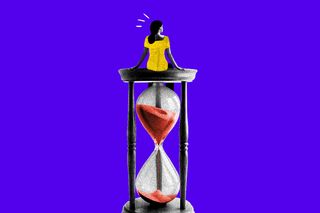
Why People Might Feel Lonelier as They Age
“[The] loneliness results from a discrepancy between expected and actual social relationships,” a researcher explained.

As teenagers and young adults, people often tend to determine their self-worthby the number of friends in their circle. As they begin to grow older, though, many start preferring fewer, but closer friends than the company of a larger group of people with whom they might not share individual, meaningful connections. Past research, too, has affirmed this trend.
In due course, the shift in social expectations that people undergo with age plays an important part in their trysts with loneliness. Published in Perspectives on Psychological Science, a study found that people’s expectations from interpersonal relationships undergo considerable changes as they age — resulting in them often feeling lonelier as they grow older, even if they’re not alone.
The study’s lead author, Samia Akhter-Khan, from the Institute of Psychiatry, Psychology, and Neuroscience, King’s College London, described her surprise upon realizing the degree of loneliness the aging population struggles with. “[P]eople are so connected and live in a very close-knit society. People have big families; they’re often around each other. Why would people feel lonely?” she remembers thinking, only for her research to tell her otherwise.
“Loneliness results from a discrepancy between expected and actual social relationships,” she goes on to explain. According to her, researchers have long been aware of this discrepancy being the “core mechanism” behind loneliness. However, past research hasn’t really delved into what constitutes this discrepancy for an aging population. “The problem that we identified… was that we haven’t really thought about: What do people expect from their relationships? We work with this definition of expectations, but we don’t really identify what those expectations are and how they change across cultures or over the lifespan,” Akhter-Khan notes.
Related on The Swaddle:
Why Some People Feel More Lonely Than Others
Among the age-specific expectations overlooked by both science and pop culture, were those of being respected and feeling like valued, important members of their respective communities. To fulfill the former expectation of respect, people need others to pay heed to them and learn from their experiences. For the latter, they want to feel like they’re contributing to their communities by passing on their skills and their wisdom to younger people through teaching and mentoring. Arguably, both of these expectations run much deeper than the need for mere companionship. As co-author Leon Li, from the department of psychology and neuroscience at Duke University, commented, “They’re not part of the regular scales for loneliness.”
Unfortunately, however, both science and pop culture have largely failed to comprehend the plight of aging populations, in terms of their evolving social expectations. “Ageism and negative aging stereotypes don’t help,” Akhter-Khan remarked.
Past research, too, has attempted to dig into the cause of growing loneliness among people as they get older. A 2016 study, published in The International Journal of Aging and Human Development, had found that for people between the ages of 18 and 29, the quantity of time they spent socializing determined whether they felt lonely; for those between the ages of 30 and 64, though, it was the quality of the time they spend around people that mattered more.
In other words, rather than spending a lot of time with a large number of people and making small talk, they preferred the company of confidants whom they could have deeper, more intimate conversations with.
Related on The Swaddle:
How Lack of Sleep Makes People Less Helpful, More Lonely
Explaining the rationale behind the age-related evolution of social expectations, Kira Newman wrote in Healthline: “If you think about the typical trajectory of life, these findings make sense. For younger people who are building their careers and searching for mates, it helps to meet and spend time with lots of people. As we get older, and perhaps become parents, we may see friends less often — but we need someone to call when the stress of sick toddlers or power struggles at work becomes too much to bear.”
Amid the “chronic loneliness epidemic” that we’re caught in the midst of, the present study assumes greater importance — especially so since loneliness isn’t just a source of immediate emotional distress. It can adversely impact people’s immune systems, and their heart and brain health — besides increasing one’s risk of premature death.
Yet, as the present study demonstrated, we’ve barely explored interventions to address loneliness through an age-informed approach.
“The identification of the factors associated with loneliness is necessary to be able to develop and target appropriate interventions. Unfortunately, most of the current interventions seem to be limited in their effect,” Thanée Franssen from Maastricht University in the Netherlands, who wasn’t involved in the present study, had noted in 2020. “A possible reason for this may be that most interventions for adults are universal… [I]nterventions should be developed for specific age groups.”
Devrupa Rakshit is an Associate Editor at The Swaddle. She is a lawyer by education, a poet by accident, a painter by shaukh, and autistic by birth. You can find her on Instagram @devruparakshit.
Related


Woe Is Me! “Is My College Dress Code Sexist?”
